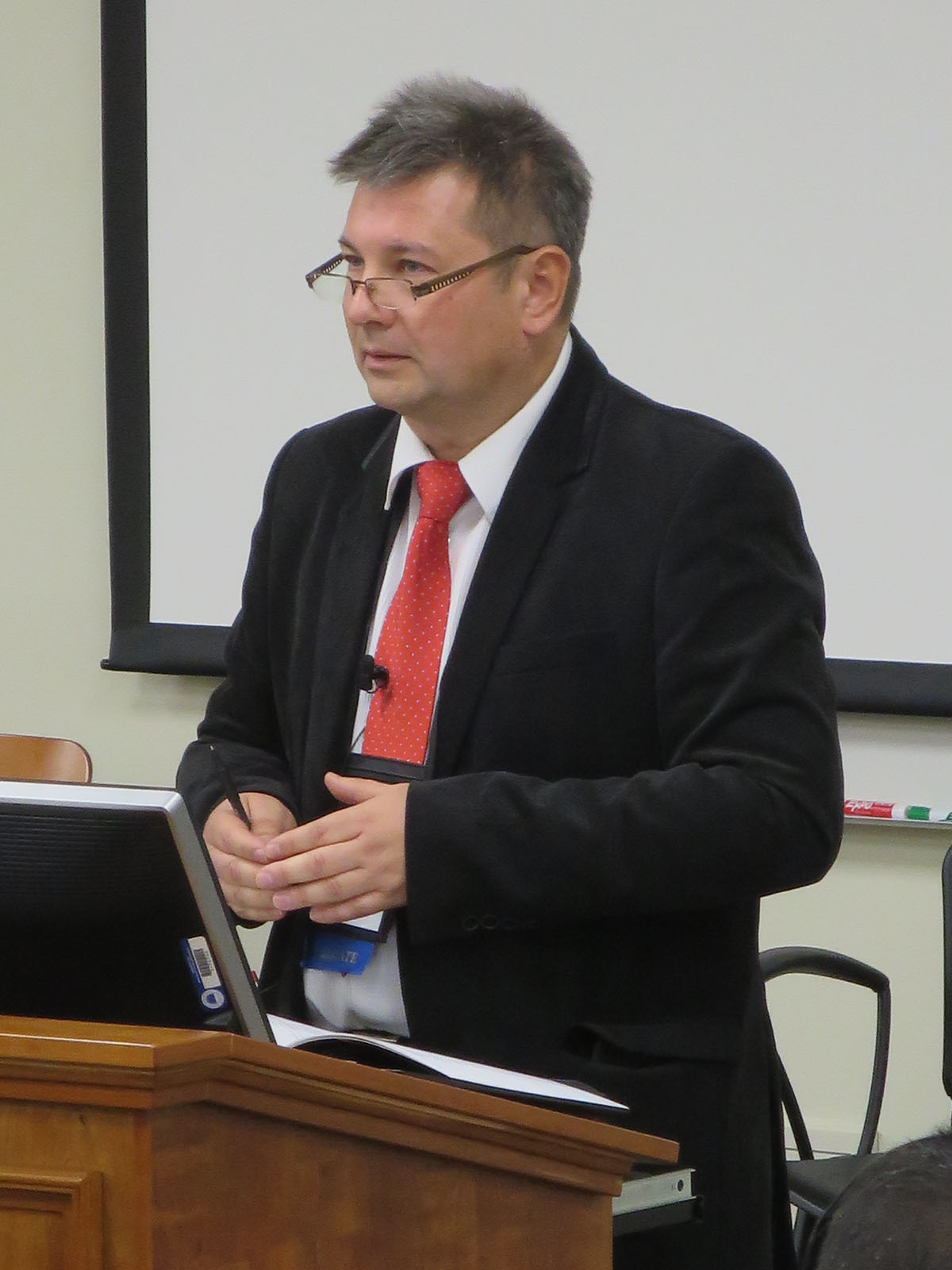Symposium 2016: Religious Rights in Europe

by Ryan Hughes
In a session moderated by Justin Collings, an Associate Professor at the J. Reuben Clark Law School, Jaime Rossell Granados, from Spain, Paulo Soares Mendes Pinto, from Portugal, Andrey Lymar, from Poland, and Tore Lindholm, from Norway, discussed the current debates and development of religious rights in Europe.
Jaime Rossell Granados, the Deputy Director General for Religious Affairs at the Ministry for Justice in Spain, discussed how Spain has been working to protect religious freedom for all organizations and individuals. He described the three institutions that Spain has established to protect these liberties – the Registry of Religious Entities, the Religious Freedom Advisory Committee, and the Foundation for Pluralism and Coexistence. He also detailed the process for signing agreements between religious confessions and the state in order to guarantee liberties such as tax exemptions, slaughtering animals in a proscribed way, or marriage and burial methods. He stressed the importance of citizenship as a way of quelling religious conflict. If members of different faiths see themselves as citizens of the same nation, they will work to get along together regardless of their differences in belief and religious practice.
Paulo Soares Mendes Pinto, a Coordinator of the Religious Studies Department and Political Science Professor at Universidade Lusofona, described the history of religious freedom in Portugal. He detailed the close connection between the Portuguese government and the Catholic Church and how the Religious Freedom Act of 2001 sought to equalize the freedoms for all the confessions within the state, and the law still recognizes the significance the Catholic Church has played throughout the history of the nation. He stressed the tolerance of the Portuguese community for other religions but that tolerance is not the same as understanding. He listed recent statistics based on a survey in Portugal that although people are supportive of religious freedom, they do not believe that this has led to greater interfaith dialogue. Without an increase in interfaith dialogue, the risk for interreligious conflict remains elevated.
Andrey Lymar, who is Vice Dean at the Faculty of Social Sciences in Gdansk, Poland, discussed a variety of problems dealing with youth and security issues. He stated the need to help the youth (including those between 20 and 30) learn how to support themselves so that they do not need the state to support them. He also stated how youth are more susceptible to extremist thought and ideologies, although he stressed the need for a standard definition of extremism in order to accurately measure this problem. In order to combat extremism, youth need to take part in the democratic process so they feel more involved. Lymar also brought up the migrant crisis and Poland’s policy regarding those seeking refugee status.
Tore Lindholm, who is a Professor Emeritus at Norwegian Center for Human Rights and a member of the law faculty at the University of Oslo, discussed the religious plurality that exists in Norway. He started by outlining the history of religion in Norway and how Norway has moved from a royally implemented state church into a pluralistic society. The traditional church of Norway is still the most popular religion in the state, but the state supports all religion equally. Each religious community within Norway is offered the same state funds based on the number of members. Lindholm also listed several problems with this method of state and church relations and how Norway is seeking to overcome these problems.